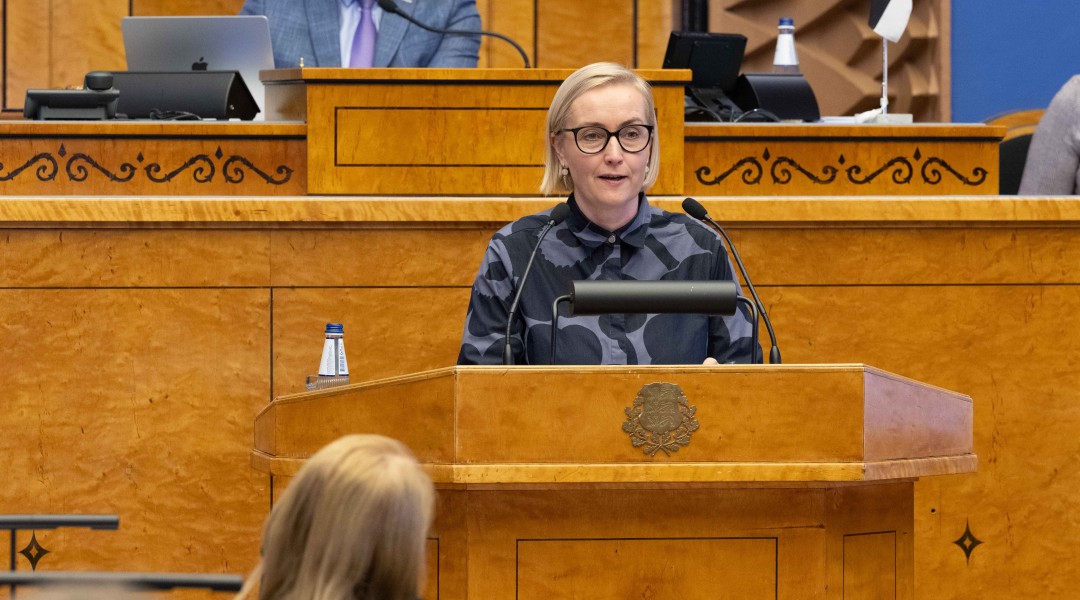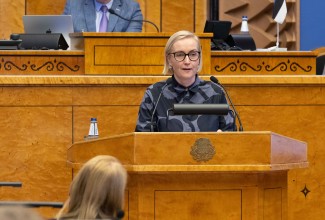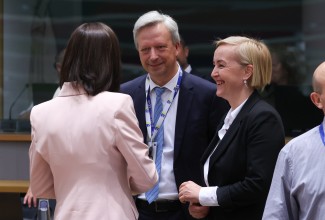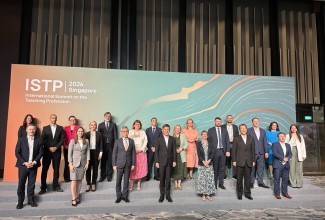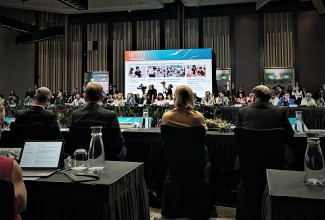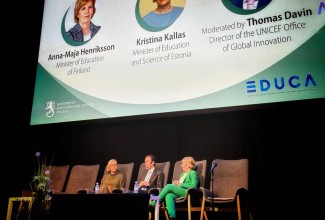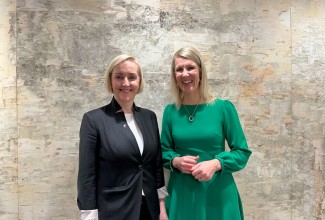Dear Members of the Riigikogu, dear listeners
When President Toomas Hendrik Ilves held his speech on the anniversary of the Republic of Estonia about ten days ago in the assembly hall of the University of Tartu, he said (and I quote) ‘as we look around us and take in what is happening in the world, we see how we are gradually approaching the twilight of an otherwise familiar and quite comfortable era.’
This end of an era, which has lasted 35 years, spanning the whole period of our restored independence, is characterised by smartphones and the spread of high-speed internet, Estonia’s strong integration with Europe and the development of our infrastructure with European subsidies, as well as historically low interest rates and an ever-improving life.
In his speech, President Ilves ultimately directed our thoughts to the fact that if we are currently sensing the end of an era, but we only have a vague idea of what is awaiting us, we should first and foremost focus on the question of what is important and what is not.
What is most important for Estonia? Outlining this in the approaching end of an era is a difficult task.
Allow me to make a modest attempt to formulate the three most important issues for Estonia.
First. A new – but in fact old – geopolitical confrontation in Europe has already emerged in Ukraine, although some European allies have yet to fathom it. Standing up for freedom in a geopolitical confrontation is clearly the most important task on which the Estonian government must focus. This is important.
Second. Who controls energy resources, both renewable and non-renewable – this is a struggle that has yet to take shape. Changing ownership of energy resources is strongly driving the evolution of the world economy and political power relations. One of the most important questions for Estonia is whether we can produce affordable new energy from renewable resources fast enough for our economy and well-being. This is important.
Third. The world economy and the well-being of future generations will strongly be shaped by technological progress and the resulting need to raise people’s level of knowledge. But there are also mental health issues. Technological acceleration and the emergence of artificial intelligence are forcing the evolutionary development of humanity into a tailspin. Either we evolve to embrace this technology or we stagnate. And here, education is the key – how and what we teach future generations in school and what kind of a world we prepare them for. The third major issue shaping the essence of the new era is the ability of national education systems to evolve sustainably with technological progress, as well as investment in education and research. This is important.
So, Estonia’s defence, Estonia’s energy resources and Estonia’s education are three policy areas that are shaping the features of a new era that is still in the making.
In education, change often means that what has brought us here will also take us forward. In its own way, Estonia’s education system has withstood centuries of change even better than the Estonian state. Older than the Estonian state, Estonian education has proven its strength. We have to maintain these strengths. But we need more than that to move forward.
We also need new solutions, which may not necessarily be the easiest, cheapest or most pleasant, but which will ensure our increasing prosperity, sustainable development and economic growth in the long term. A fifth of our pupils are enrolled in a segregated Russian-language education system. This parallel school system, created during the Soviet occupation, produces social segregation by mother tongue, which means disadvantages for Russian-speaking young people, both in the labour market and education. One out of every ten basic school leavers in Estonia does not continue studies beyond basic education. In the 21st century characterised by the rise of artificial intelligence, this almost inevitably means a lifetime of low well-being. We have increasing educational inequality, with young people from rural areas less likely to continue their education at university.
Estonia is no longer a country of cheap, skilled labour, and that can no longer be a basis for our success in raising our standard of living. The key to Estonia’s next leap forward is an educated Estonian workforce with high tech skills. This requires changes in education.
The year ahead will bring a series of long-prepared reforms, driven by anticipation of the approaching pivotal times briefly mentioned above. The most significant is the transition to Estonian-language education, awaited for decades. At the same time, changes in primary, general, vocational and higher education also lie ahead. In addition, we have to agree on the working conditions and salaries of teachers, where my aim is to conclude a long-term education pact for the first time in Estonian history.
Read more (full text of the speech)
Photo: Riigikogu, Erik Peinar
